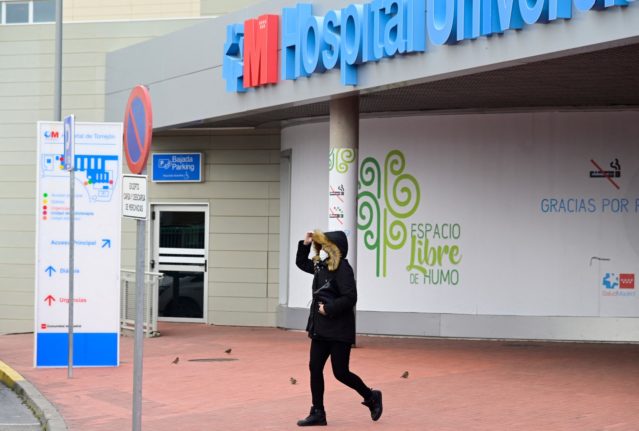With the increase in respiratory infections, “we are calling” for the return of obligatory mask-wearing in hospitals and health centres, Health Minister Monica Garcia said on X, formerly Twitter.
Ante el repunte de virus respiratorios, tenemos que cuidarnos mutuamente.
Convocamos nuevamente un Consejo extraordinario con las CC.AA. para empujar acciones coordinadas que ayuden a desaturar los servicios de salud. pic.twitter.com/rJhZFx6NjZ— Mónica García (@Monica_Garcia_G) January 5, 2024
The minister said she would bring up the subject on Monday at a meeting with regional representatives overseeing health issues.
READ ALSO: Respiratory infections soar in Spain over Christmas as hospitals struggle
The meeting would enable “coordinated public health action to be taken in the face of the epidemic spikes”.
The eastern region of Valencia and Catalonia, in the northeast, announced Friday that health professionals and patients would have to wear masks in medical facilities there.
The move came after doctors raised the alarm over mounting cases of flu as well as Covid and other respiratory ailments, particularly in the east of the country.
READ ALSO: Coughs, colds and flu: What to say and do if you fall sick in Spain
Spain only lifted the obligatory wearing of masks in high-risk facilities such as hospitals, retirement homes and pharmacies in July 2023.
Spaniards broadly complied with the obligation to wear masks during the Covid pandemic which saw the badly-hit nation adopt some of the strictest measures in the world to fight the virus.



 Please whitelist us to continue reading.
Please whitelist us to continue reading.
Member comments